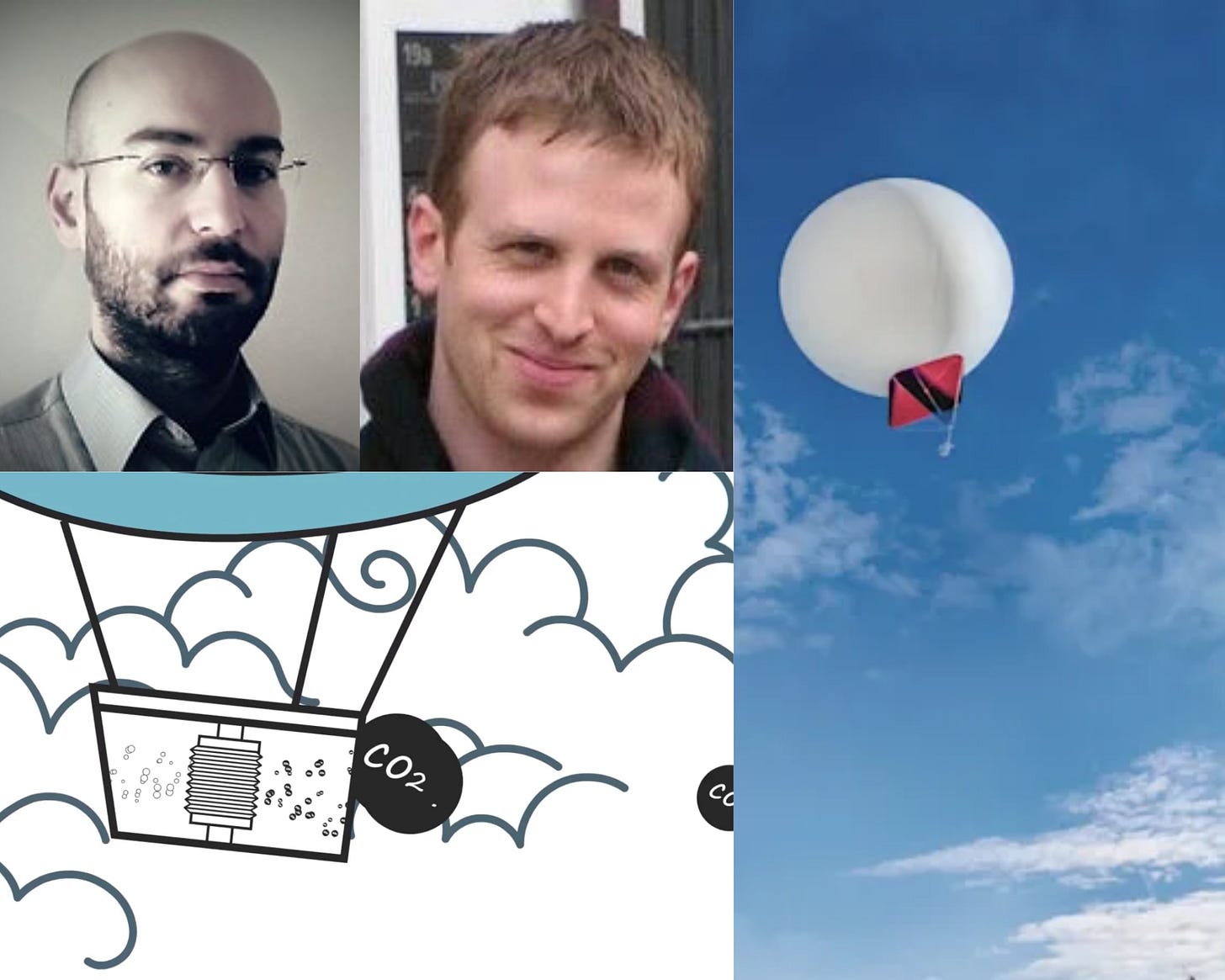An overheated engine, heat exhaustion and helplessness
That's been the highlight of my last week
For the past couple of weeks, I’ve been working from an Airbnb in Montreal.
I wanted to get out of Toronto and see how a workation (work away from work) feels like.
And it’s been really hot!
For the last week, the city has been under an extreme heat warning.
Montreal broke the record set in 1916, where we saw more than three days with temperatures of 33 degrees
For reference, the average temperature in the city in the month of August is usually around 25 degrees.
Our rented car’s engine had overheated last weekend.
Though there were technical reasons behind that, I am quite sure these high temperatures also had a part to play.
Have you recently been impacted by climate change as well? If you would like to share your experience, drop a comment below or just reply to this mail.
Even if all greenhouse gas emissions ceased today, the heat waves and floods would still occur for centuries.
But to prevent these events from growing in frequency and intensity, it’s important to reduce the emission of greenhouse gases and also remove the existing ones from the atmosphere.
If we do not stop greenhouse gases from rising further, especially CO2, large regions of the planet will become uninhabitable
Let’s see how these 3 startups across the world are playing their part in reducing the greenhouse gases in the atmosphere⬇️
Not stopping anytime soon…We are 7.8 billion now. By 2050, we will be 10 billion. Feeding this growing population is putting a huge strain on Earth's resources. It is responsible for 24% of greenhouse gas emissions. Farming uses vast areas of land that are made by clearing carbon-storing forests. 70% of the water used worldwide is used by farming. This, coupled with escalating demand for meat and dairy is a major source of greenhouse gases in the atmosphere.
Making food out of thin air…Finnish startup Solar Foods has developed a new form of protein, named Solein. Through a fermentation process, it converts carbon dioxide into human edible proteins. The protein powder could be added to things like bread and pasta, or to plant-based meat or dairy substitutes. The brand claims that Solein is 100 times more climate-friendly than meat and 10 times better than plant-based proteins.
The production starts by electrolyzing water to create hydrogen.
The hydrogen is then combined with carbon dioxide and some minerals and is fed to microbes in a tank, which creates protein.
The microbes are then heat-treated to make protein powder.

Solein shakes, anyone?… The resulting protein powder Solein has a protein content that is at par with dried soya(~65%). Unlike plant-based protein, this does not require any land or irrigation and is not dependent on weather. And thanks to us, the main ingredient carbon dioxide is available in abundance.
Are we sipping sustainably?… Traditional vodka is made by fermenting grains like corn, wheat and potato, which naturally leads to carbon emissions, as you need to farm these crops. A typical bottle of vodka creates around 13 pounds of greenhouse gases. The process of fermentation also creates impurities like methanols and carbolic acids that are difficult to remove through distillation.
Carbon negative vodka…Air Company is solving this by redefining how vodka is made. Using a patented process, the company converts carbon from the air into vodka, creating a bottle of vodka that soaks up as much carbon dioxide from the atmosphere as eight fully grown trees. Air Vodka is made with just 2 ingredients- carbon dioxide (CO2) and water.
The company takes CO2 from beverage manufacturing plants and ethanol factories in the northeast of the USA.
The CO2 is then liquefied at facilities powered by hydroelectric plants and trucked to Air Co's facility.
It is then converted into ethanol which is a form of alcohol.

The possibilities are endless…The process does not require acres of land that are needed in the traditional production of vodka. The startup’s patented distillation system runs on renewable solar electricity. They have partnered up with NASA to study how ethanol from CO2 can be turned into glucose, which could then be used for food in space. They also plan to have perfumes and other ethanol-based products in the future.
Reforestation won’t be enough…CO2 levels in the atmosphere are at a record high—417.14 parts per million in March 2021. The pre-industrial levels were around 278 parts per million. There’s no doubt that we need systemic change to reduce emissions at their source. But a study has calculated that this needs to be supported with direct-air-capture technology that will have to suck as much as 1,850 million metric tons of CO2 out of the air by 2045. The challenge with the technology is its cost, which stands currently at US$600-1000 per ton of CO2 removed.
Up, up and up…Instead of installing the carbon capture technology on the ground, like most of the carbon capture startups are doing, High Hopes want to use machines at high altitudes, where temperatures can dip to minus 70-80 degrees Celsius. At such low temperatures, carbon essentially converts into dry ice. It believes that its proposed solution will make it easier, and cheaper, to extract large volumes of CO2 from the air.
They would put low-energy carbon capture rigs in high-altitude balloons, send them up to heights where they can work most efficiently.
The pressure tanks will be filled with dry ice which will then be brought down to Earth.
As the temperature rises, the dry ice will turn back into CO2 gas and it will be sent for geosequestration.

Let’s talk numbers…The startup has done some successful tests and is tweaking the technology so that a single balloon can capture a metric ton of CO2 each day. The technology is expected to cost around $100 per ton of CO2 removed. Their first facility with 100 balloons would capture around 30,000 metric tons of CO2 each year.
🔍Ready for this week’s crossword challenge?
You can solve it by clicking here
Here are the responses
If you liked this edition, please do share it. That would mean a lot😊
📢 Shoutout to Paridhi who helped me write this edition.
Hit that 💚 if you liked today’s edition.
Are you following us on Instagram?
Thanks and see you next week😄










